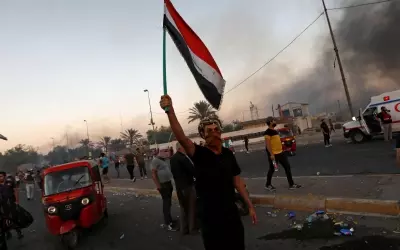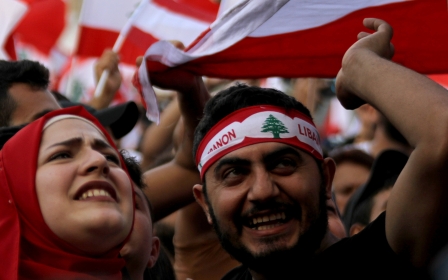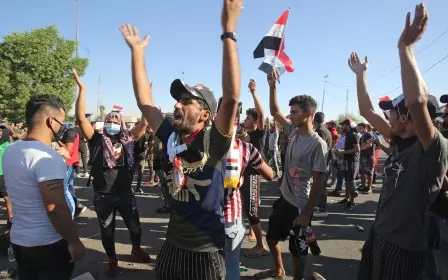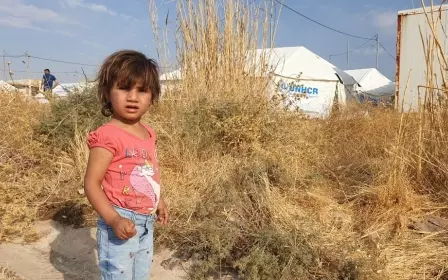'Just let us live': Protests renewed in Iraq after deadly crackdown
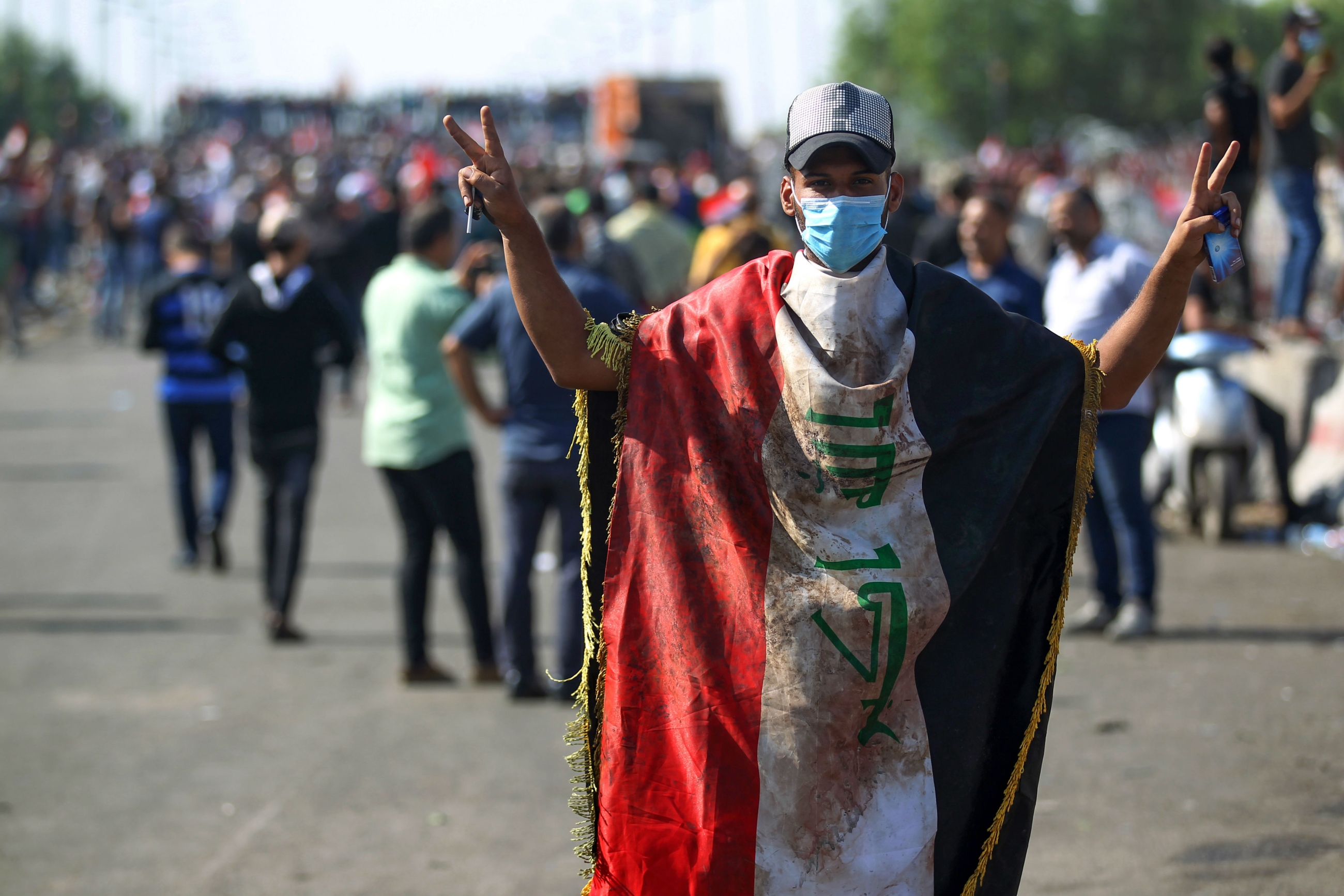
Hundreds of protesters converged in and around Baghdad's Tahrir Square, vowing to remain on the streets until Prime Minister Adel Abdul Mahdi's government resigned over its failure to address corruption, mass unemployment and poor public services.
"It's enough, theft, looting, gangs, mafias… Get out," one protester told the AFP news agency, as riot police tried to clear the busy square. "We don't want anything, just let us live," he added as smoke from tear gas rose behind him.
The death toll from protests that erupted early this month has climbed to 220, including dozens who were killed as they torched government buildings or militia offices over the past two days.
More than 60 people have died in the renewed anti-government protests across Iraq, officials said on Saturday, with clashes breaking out as demonstrators turned their fury against government and paramilitary offices, AFP reported.
Protester Ameer Ghazawi, 31, of Basra, said: “I took to the streets to rid Iraq of the corrupt system and Islamic parties that have destroyed the country.” He added that militias in Basra have intentionally tried to turn “peaceful demonstrations into aggressive ones and opened fire at both security forces and protesters”.
According to the Iraqi rights commission, at least 2,000 protesters were wounded across the country on Friday.
The protesters, a cross-section of society, have railed against widespread corruption, unemployment, lack of services and cronyism that has afflicted the country since the 2003 US-led invasion.
Ahmed Alazraqi, 29, of Basra, said: “I am protesting to change the ruling system in Iraq and cancel the provincial councils, as well demanding jobs for young people.”
One in five Iraqis lives below the poverty line, World Bank figures show, and youth unemployment is at 25 percent. The rates are staggering for OPEC's second-biggest oil producer, which Transparency International ranks as the 12th most corrupt state in the world.
Abdul Mahdi has suggested a laundry list of measures, including hiring drives, increased pensions and a cabinet reshuffle - but the protesters seem unimpressed.
Iraqi political researcher Raad Hashim told MEE that the protests meant people had lost faith in the premier. “The government works to serve itself and its allies in Iran while it offers nothing to Iraqis,” he said.
Some of the demonstrators have directed their anger at Grand Ayatollah Ali al-Sistani, the country's top Shia religious authority, who is deeply revered among most Iraqis.
On Friday, Sistani urged protesters and security forces to show "restraint", warning of "chaos" if violence resumed.
Others have been waiting for a signal from influential populist cleric Moqtada al-Sadr, who has thrown his weight behind the protests.
That may have come late Saturday from a surprise sit-in by lawmakers linked to Sadr. On Saturday night, members of his Saeroon bloc - parliament's largest with 54 MPs - escalated the situation.
MP Badr al-Zayadi said they had begun an open-ended "sit-in, until the enactment of all reforms the Iraqi people are demanding".
The move put Abdul Mahdi under more pressure than ever as Saeroon was one of the two main sponsors of his government.
Later on Saturday night, street lights were turned off around Baghdad's Tahrir Square, plunging protesters who were clinging to their positions into darkness.
Witnesses said security forces were unleashing volleys of tear gas to clear the crowds, each canister lighting up the smoke-filled square with flashes of light.
Explosions could be heard well past midnight.
AFP and Reuters contributed to this report
Middle East Eye delivers independent and unrivalled coverage and analysis of the Middle East, North Africa and beyond. To learn more about republishing this content and the associated fees, please fill out this form. More about MEE can be found here.



